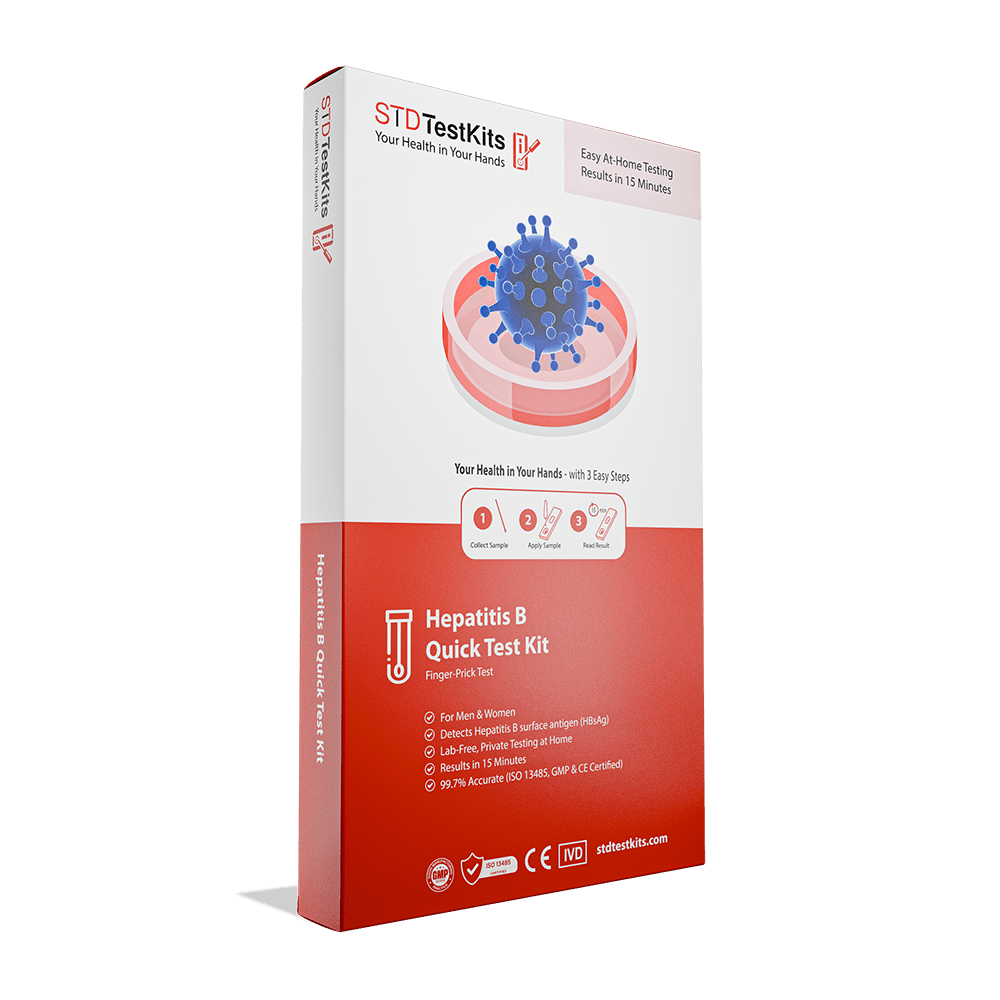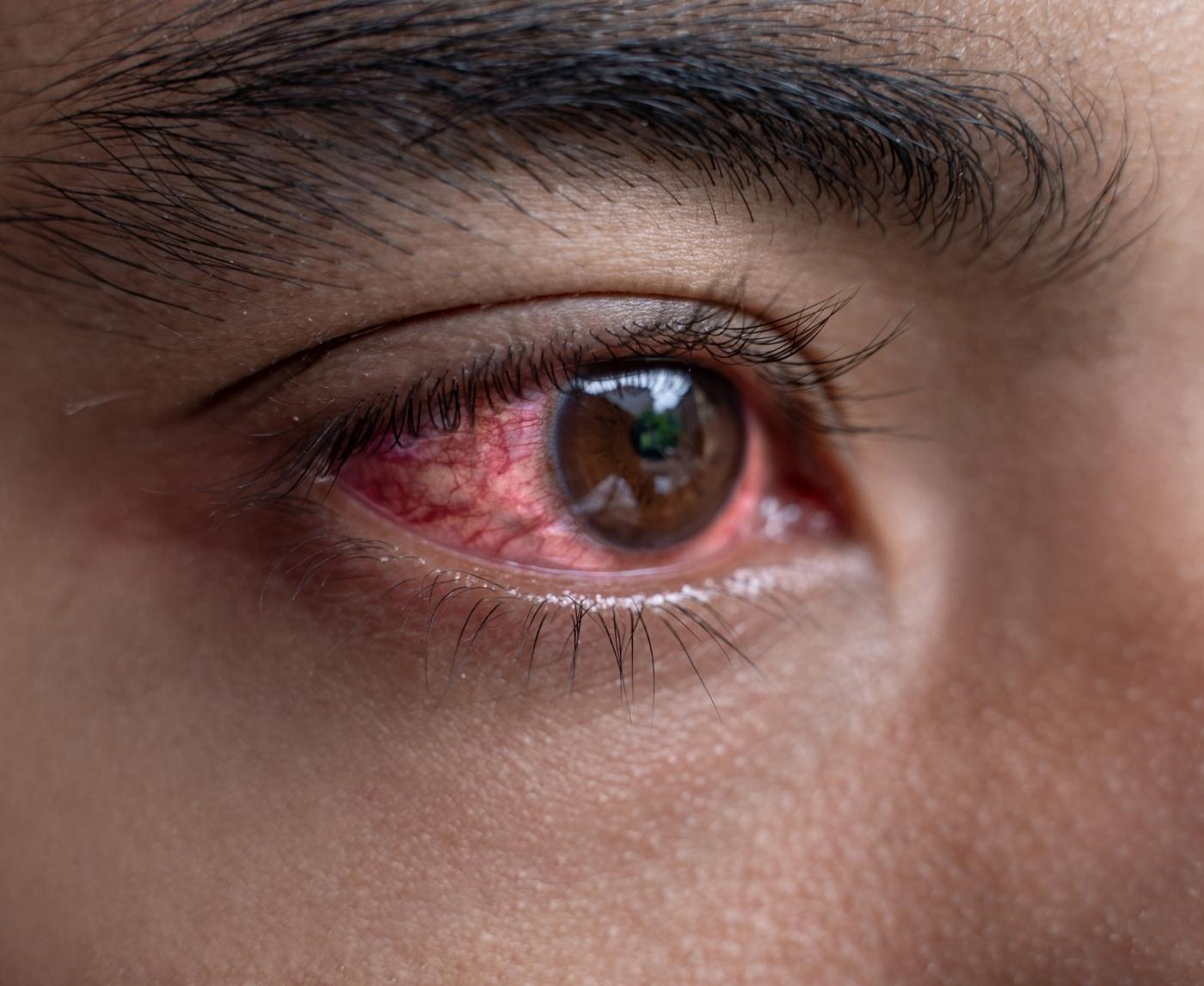Can Chlamydia or Gonorrhea Infect Your Eye? What to Watch For
Quick Answer: You should get tested for hepatitis B at least once around 4–6 weeks after possible exposure, but follow-up testing may be needed at 3 and 6 months depending on the type of exposure, your vaccination status, and the tests used. Ask for HBsAg, anti-HBs, and anti-HBc IgM to get a full picture.
The Moment You Realize You Might’ve Been Exposed
Maybe it was a hookup where protection failed. Maybe you shared something you shouldn’t have, like a razor, needle, or toothbrush. Or maybe a friend called and said, “Hey... I tested positive.” Suddenly, you’re retracing every second of contact, Googling symptoms you may or may not feel, wondering if you can even trust your body to give you clues.
This is the limbo zone. The anxious waiting room between possible exposure and clarity. And hepatitis B doesn’t make it easy, it can stay silent for weeks, even months, before any signs appear. Some people never get symptoms at all. Others don’t find out until their liver starts failing years later.
So if you’re in this moment, reading this with clenched teeth and a racing heart, know this: there’s a timeline. There’s a protocol. And you can take control, starting right now.
People are also reading: I Had Hepatitis C for Years and Had No Idea
What Is Hepatitis B and Why Testing Timing Matters
Hepatitis B (HBV) is a viral infection that attacks the liver. It can be passed through blood, semen, vaginal fluids, and even small cuts on the skin. It’s incredibly infectious, 100 times more so than HIV, and most people who get it never feel a thing. At least not right away.
This makes testing tricky. There’s a window period after exposure when the virus may be in your body, but your immune system hasn’t responded yet, and the tests won’t catch it. That’s why testing too early can give you a false sense of safety. But testing too late? That’s when HBV can start quietly damaging your liver.
Knowing when to test isn’t just helpful, it’s critical. It’s the difference between catching the virus early, when it can be monitored or treated, and missing it entirely until it causes real harm.
How Hepatitis B Is Spread
Let’s clear up some confusion. Hepatitis B isn’t just a “drug user” or “promiscuity” issue, it’s a public health sleeper agent. You can get it from:
- Unprotected sex (oral, anal, or vaginal)
- Sharing razors, toothbrushes, or nail clippers
- Exposure to blood through cuts, open wounds, or menstrual contact
- Unsterile tattoo or piercing equipment
- Medical procedures in some countries
- Birth (from an infected parent to baby)
Needlestick injuries, dental equipment, and even shared personal hygiene tools can be enough. If you think you were exposed, you're not overreacting. You're responding to a legitimate risk.
Window Periods: When to Test for Hepatitis B After Exposure
Timing your test depends on how long it takes your body to produce detectable levels of the virus, or the antibodies that respond to it. This varies depending on which test is used:
Table 1. Hepatitis B test types, what they detect, and when they become accurate after exposure.
If you were exposed recently, you may need to test more than once. An early PCR or antigen test at 2–3 weeks, then follow-up antibody testing around 6–12 weeks, gives you a fuller picture.
Do You Even Get Symptoms Right Away?
Here’s the mind-bending part: most people who get hepatitis B never feel sick at all, at least not right away. You could carry the virus for weeks, months, or even years before anything feels off. That’s why it spreads so easily. That’s why so many people never know they’re infected until routine bloodwork throws up a red flag.
But for the people who do get symptoms in the early phase (called the “acute” stage), they usually show up within 60 to 150 days. And when they hit, they’re sneaky, easily mistaken for the flu, a bad hangover, or food poisoning.
Look out for:
- Fatigue that won’t quit
- Fever, nausea, or loss of appetite
- Dark urine or pale poop (yep, really)
- Yellowing of skin or eyes (jaundice)
- Upper right-side abdominal pain (where your liver lives)
If any of that rings a bell and you had a risky encounter in the past few months, don’t shrug it off. Your liver might be waving a red flag.
What to Do Right After Exposure
If you know, or strongly suspect, you were exposed to hepatitis B within the last 24 to 72 hours, go seek medical care immediately. You may be eligible for post-exposure prophylaxis (PEP), which can help prevent infection from taking hold.
That might involve a hepatitis B vaccine booster, or a dose of hepatitis B immune globulin (HBIG), especially in high-risk cases like needlestick injuries or partner exposure. But you have to act fast, these interventions are only effective in the first few days post-exposure.
If you’ve already been vaccinated, you may still want to get tested to confirm immunity. If you’ve never been vaccinated, now is the time to start.
Testing Recommendations by Exposure Type
Not all exposures are created equal. The testing window, and urgency, may vary depending on how the contact happened. Here's a breakdown:
Table 2. Testing timing and action steps by exposure type.
How Hepatitis B Compares to A and C
Hepatitis comes in multiple flavors, A, B, and C being the most well-known. If you're confused about which one you might have been exposed to, or whether you should be tested for more than one, here’s how they differ:
Table 3. Comparing hepatitis A, B, and C by risk and prevention.
If you've had a recent exposure involving blood, unprotected sex, or shared equipment, it’s smart to get tested for all three. The symptoms overlap, but the treatment and long-term risks don’t.
Should You Retest Later?
Yes, especially if your first test was early. Think of hepatitis B testing like a photo in a darkroom. The image might start to appear, but it takes time to fully develop. If you test too soon after exposure, your immune system may not have produced enough surface antigens or antibodies to be detectable yet.
If your initial results come back negative, don’t exhale just yet. You may need to repeat testing at the 6-week and 3-month marks. This is especially important if you:
- Had unprotected sex with someone whose status is unknown or positive
- Shared needles or came into contact with infected blood
- Are immunocompromised (your immune response may be delayed)
Don’t assume one test equals closure. Hep B plays the long game. Your testing strategy should, too.
If You’re Vaccinated, Do You Still Need to Test?
Possibly. The hepatitis B vaccine is highly effective, but only if you’ve had the full 3-dose series and developed immunity. Many people don’t know their immune response status, especially if they were vaccinated as infants or long ago.
If you’re unsure whether your body mounted a full defense, you can request an anti-HBs titer, a blood test that checks whether you have enough protective antibodies to fend off the virus. If the result is below 10 mIU/mL, you may not be protected and should consider a booster shot.
Vaccination is a shield. But sometimes, it needs reinforcement.
People are also reading: Who’s Really at Risk? STD Testing Rates in Sex Work vs Everyone Else
Why “Negative” Doesn’t Always Mean “Safe”
False negatives happen more often than people think. If you test before the window period closes, your body may not have enough viral material or antibodies to trigger a positive result, even if you’re infected. That’s why retesting matters so much.
Here are the biggest reasons someone might get a false negative:
- Testing too early (before antigens or antibodies appear)
- Using the wrong type of test for their stage of infection
- Being immunocompromised (weakened antibody response)
- Only testing once without follow-up
Bottom line: negative doesn’t mean bulletproof. Especially if you’re still within the exposure window.
What a Full Hepatitis B Test Panel Includes
If you want to cover all your bases, either after exposure, or just for peace of mind, make sure you ask for the full panel, not just a single surface antigen test. Here’s what that includes:
Table 4. Comprehensive hepatitis B testing components and what they detect.
If your provider only orders HBsAg and nothing else, you’re not getting the full picture. Especially if you're trying to confirm exposure, immunity, or stage of infection.
Still Not Sure What to Do? You’re Not Alone
This whole thing is confusing, on purpose, it sometimes feels. Tests come with acronyms. Window periods vary. Doctors rush through explanations. And meanwhile, you’re sitting there wondering if your blood is quietly hiding something you won’t find out about for months.
That’s why we built this next section. It covers the questions most people are too afraid, or too overwhelmed, to ask.
Let’s get you some straight answers.
FAQs
1. How long should I wait to get tested after possible Hep B exposure?
Around 4 to 6 weeks is the sweet spot for most tests to catch a new hepatitis B infection. If you go too early, your body might not have built up enough viral markers or antibodies to show up on a test. If you’re still unsure after the first test, go again at the 3-month mark just to be safe. This isn’t a one-and-done kind of thing.
2. Can I get tested the next day after exposure?
Yes, but don't expect answers. Most standard tests won't find anything in the first few days. It's like trying to take a picture of a ghost in the sun. If you're really worried, ask for an HBV DNA (PCR) test. It can sometimes find the virus as soon as 1–2 weeks after you were exposed. But remember that this test isn't available everywhere and insurance doesn't always cover it.
3. I had the vaccine years ago, do I still need to worry?
Maybe. The vaccine is amazing, but only if you completed all three doses and actually developed antibodies. A lot of people assume they’re covered because they had “a shot” at some point. If you want to be sure, ask for an anti-HBs titer test. It checks your immunity level. Depending on the results, you may need a booster.
4. My test came back negative, but I still feel off. Now what?
Trust your gut, literally and figuratively. You could’ve tested too early, or your symptoms could be coming from something else (hepatitis C, anyone?). Either way, bring it up with your provider. This isn’t paranoia, it’s self-advocacy. You’re allowed to ask for retesting or broader screening.
5. Can you catch hepatitis B from oral sex?
It’s not the most common route, but it’s possible, especially if there’s blood involved (like cuts, mouth sores, or dental work). Don’t assume oral is risk-free just because it feels less intense. If you’re here reading this, you probably have a good reason to test. Listen to that.
6. What’s the difference between hepatitis B and C?
Think of them like different horror movies. Hep B is easier to catch (spreads through sex and blood), but there’s a vaccine for it. Hep C is harder to get through sex but has a sneaky habit of going chronic, and there's no vaccine. If your exposure involved blood, unprotected sex, or needles, you might want to test for both.
7. Why do so many STD panels skip hepatitis B?
Because most providers assume you’ve been vaccinated, and testing for Hep B is a bit more complex than just peeing in a cup. Many at-home kits and walk-in clinics leave it out unless you specifically ask. Always double-check the panel list. If it’s not on there, it’s not being tested.
8. What does it mean if I test positive for surface antibodies?
That’s your immune system waving a little victory flag. It means you either got the vaccine or recovered from an earlier infection, and now you’ve got protection. If that’s your only positive result (and your surface antigen is negative), you’re not currently infected. That’s good news.
9. If I don’t have symptoms, can I still spread it?
Absolutely. That’s part of what makes Hep B so dangerous. You could be feeling totally fine while your liver quietly takes a hit, and meanwhile, you're passing it to others without knowing. Silent transmission is real. Testing is the only way to know what’s going on.
10. Is hepatitis B curable?
Not exactly, but don’t panic. Most healthy adults clear it naturally within 6 months. For chronic cases, there are solid treatments that suppress the virus and protect your liver long-term. The earlier you catch it, the easier it is to manage. Ignoring it doesn’t make it go away, but facing it can.
If You Think You Were Exposed, Act Now
This isn’t one of those things to sit on. Whether it happened last night or last month, whether you’re scared, ashamed, or just confused, hepatitis B doesn’t care. But your health does. Get tested. Get clarity. And if you missed something in your last panel, don’t beat yourself up. Just fill the gap.
At-home tests like the ones we recommend offer discreet, fast screening with medically backed accuracy. Find the right hepatitis B test here and take control of your next step, privately, safely, and on your terms.
How We Sourced This
This article was informed by 15+ reputable medical sources, including peer-reviewed journals, public health authorities, and clinical guidelines. Five key sources include:
1. CDC: Hepatitis B Information
2. NIH: Understanding the HBV Window Period
3. WHO: Hepatitis B Fact Sheet
4. HepB Foundation: Testing & Diagnosis
5. Journal of Hepatology: Serological Markers in HBV
Our editorial process is trauma-informed, sex-positive, and medically reviewed to ensure clarity, accuracy, and empathy in every paragraph.
Author: Dr. F. David, MD
Reviewer: Chelsea G., MPH, Clinical Outreach Editor
Disclaimer: This article is for informational purposes only and is not a substitute for professional medical advice, diagnosis, or treatment. Always consult your healthcare provider with questions about your health.







